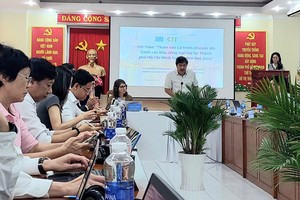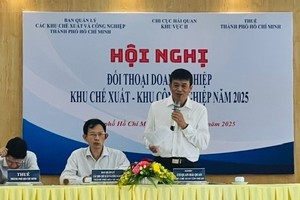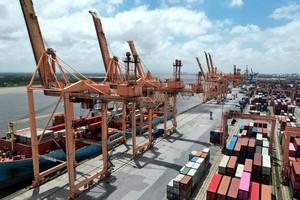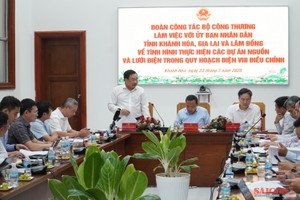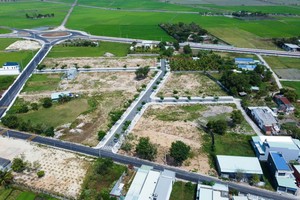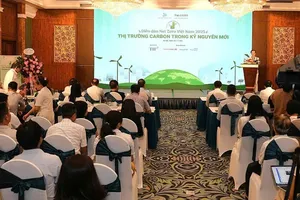
Equitisation continues to be a priority for Electricity of Viet Nam (EVN) as it abolishes its monopoly and mobilises capital to develop a competitive market for electricity, said Nguyen Mau Chung, the acting commissioner of EVN's Board of Directors.
After a period of slow progress during the first quarter of this years, restructuring of the state-owned corporation is now back on track with a focus on diversifying investment channels and making changes to how power companies operate, he said.
The corporation had completed the equitisation of 21 subsidiaries and successfully converted five others into one-member limited companies by April, and has also begun the process to equitise a further 18 companies and restructure five others, he added.
EVN said it expects to complete the restructuring and equitisation process of power generating companies by the end of this year. However, power transmission companies, hydropower plants including Hoa Binh,Tri An and Yaly, as well as the nuclear power programme will remain under the management of EVN.
Under its 2006-2010 development plan, EVN plans to equitise or restructure all provincial power companies and a number of key companies in large urban centres including HCM City, Ha Noi, Hai Phong, Da Nang and Dong Nai,
The three regional power companies - North, Central and South - are to adopt the parent-subsidiary model, becoming the parent companies for smaller provincial power units, said the EVN representative.
Chung said the corporation's efforts to step up the reorganisation process have been adequate. The 11 power companies equitised under Decision No 219 of the Prime Minister's Office have generated about 2 trillion VND (125 million USD) in earnings.
Of those 11 companies, the joint-stock power company Song Han since equitisation has doubled its revenue, almost doubled operational profits, marked a four-fold increase in state budget contributions while employee salaries rose by an average 70 percent, he said.
Ho Xuan Hung, deputy director of the State-owned Enterprise Restructuring and Development Board, said equitisation was an essential step in mobilising capital resources for the power sector, noting the growing importance of developing strategic partnerships in the sector.
Equitisation has enabled domestic and international investors to not only participate in secondary investment activities, such as purchasing shares, but also in the direct investment of independent power generating projects, he said.
Source: VNA



